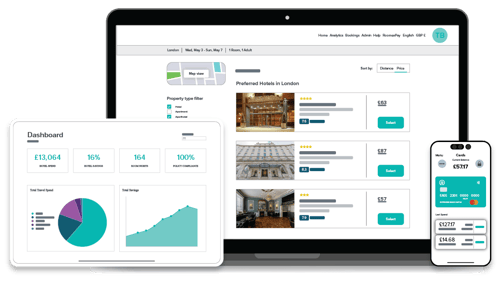Having a well-thought expense policy leads to a higher compliance rate, increased employee happiness, fraud reduction and overall time and money savings.
Expense policies are just one part of businesses expense management practices.
What is an expense policy?
Put simply, it’s a set of rules and guidelines that specify how your employees can spend company money.
Why are they important?
Thoughtfully written expense policies keep everyone on the same page when it comes to spending, reducing the chance of fraud saves the company money, while increasing productivity.
Expense policies should be simple, transparent, and trust evoking. They should be documents of empowerment, not restriction. It’s not a list of things you can’t do but a guide for employee decision making around spend.
10 best practices to consider when writing your expense policy:
1. Be fair and transparent
If your employees see your policy as fair, they will be less likely to break it. At the end of the day, these employees are travelling on behalf of the company and should be able to claim reasonable expenses. An employee shouldn’t spend hours finding a hotel within limits for a last-minute trip or go hungry if they fear they don’t have enough for a cup of tea and dinner later.
2. The same rules apply to all
If managers can behave in a different way than their employees it creates tension on teams. Research shows that managers are more likely to go out of policy yet are half as likely to get rejected for that out of policy claim. A policy is only fair when everyone plays by the same rules.
3. Be flexible
The goal isn’t just to cut costs - it’s to ensure employees are well looked after and productive while travelling. Sometimes employees are forced to go out of policy, and it’s not always a bad thing. If you’re too strict it can drive resentment and employees can look to bend the rules.
4. Go with a localised approach
It’s recommended to have different policies in place depending on the location. It costs more in London than in Birmingham and your expense policy should reflect that.
5. Get feedback from your employees
They are the ones travelling right? See what their pain points are, what they like about the current picture, and how you can improve. Not only does this create a better policy, but it creates ownership. Getting buy-in from managers also helps to ease implementation and adoption.
6. It should be simple yet specific
No. More. Jargon. The goal is to show the employee how they can spend company money, not educate them in law. The policy should be specific in what they can and cannot spend on to eliminate any confusion. For example, ‘Laundry services are not included’ or ‘Dinner should not exceed £X.’ The easier the rules are to remember and read, the more likely they will be followed.
7. It should be easy to find
Sounds basic, but make sure employees know where to reference the policy while on the go. It’s best practice to offer expense policy training while employees are onboarding.
8. Documentation is required
If you’re using traditional expense management methods this is very important. Let your employees know what type of receipt and the date it’s accepted until they need to attach to their expense report. For an automated system, it’s much easier, however, it still needs to be addressed. For example, if a picture is required of the receipt or if the employee must select the category of the purchase.
9. Reimbursement is clear
There should be very specific language for those that do not use prepaid company cards with employees paying out of pocket. Let your employees know when they will be paid back and how.
10. It should integrate with your current systems
As we’ve mentioned, it’s best to have a real-time modern expense management platform. The perfect opportunity to put its bells and whistles to work is to include your expense policy right within the platform. Then the direction outlined in your expense policy document shows up throughout the steps of making a purchase, approving, and recording receipts.
We’ve created a sample expense policy to guide you as you draft yours. Note, this policy assumes you’re already using or are switching to a modern expense management platform such as RoomexPay. It should be used as a guide.
Expense Policy Template
Our sample expense policy is extremely detailed, use only what is relevant to your business. We also reference our accommodation management platform RoomexStay. If you do not use this product to book accommodation, be sure to add in your travel booking policy.
Click here to download your expense policy template

September 23, 2020
